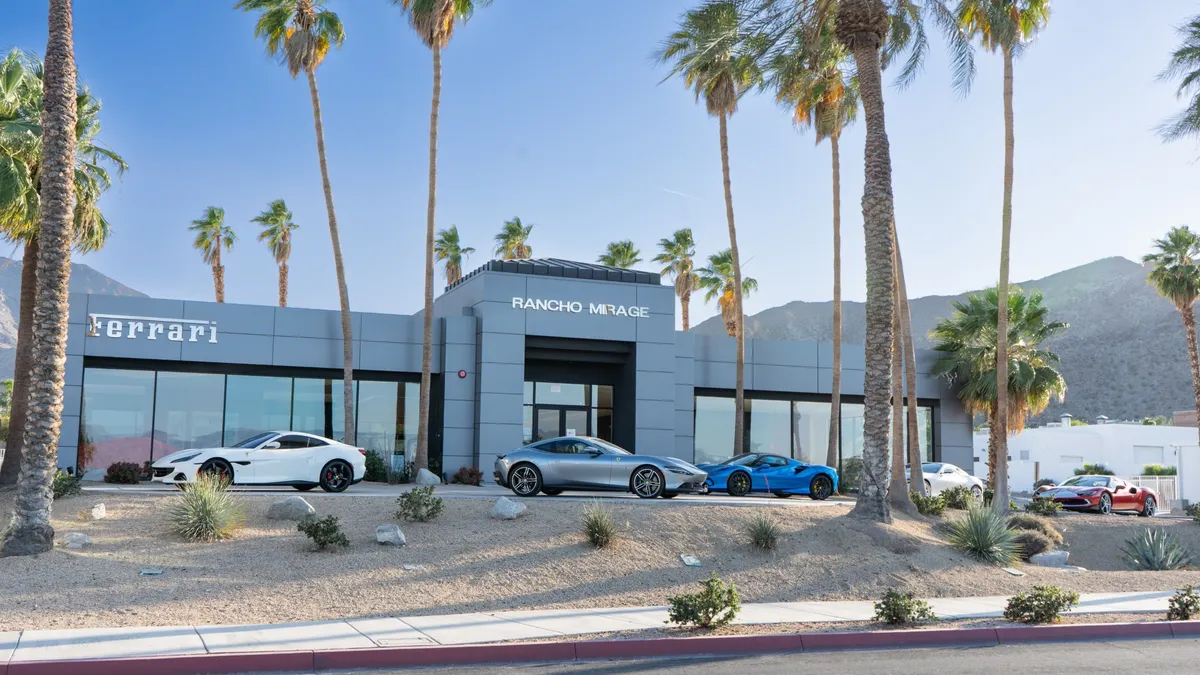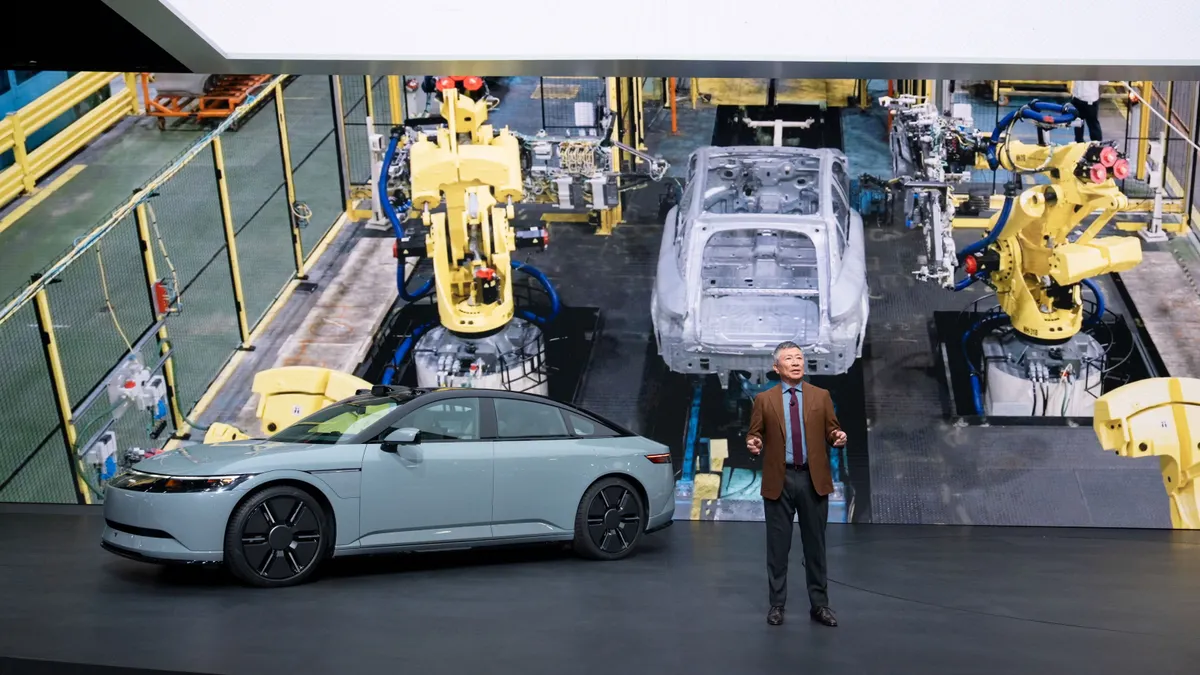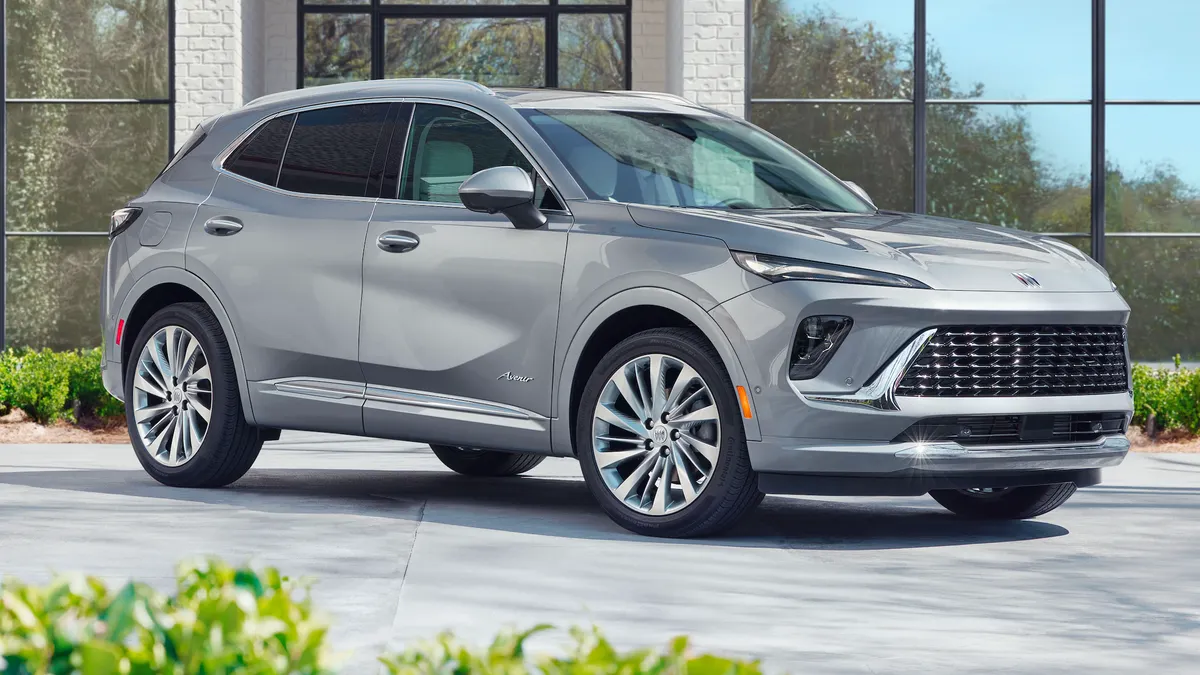Editor's note: This story is part of the WardsAuto digital archive, which may include content that was first published in print, or in different web layouts.
CHANGCHUN, China – Growing up here in northern China, Qiu Shaobo shared with his parents and brother a small apartment that measured 161 sq.-ft. (15 sq.-m). There was only one car in the entire city, and it belonged to a government official. The car was imported from the Soviet Union.
Today, at 51, Qiu is married, owns two cars, has a daughter studying abroad at one of Canada’s most prestigious universities and is the head of safety research for First Automotive Works, which manufactured China’s first domestic car here in 1958. His spacious home in the suburbs is 20 times larger than his humble boyhood flat.
There are many upwardly mobile families such as Qiu’s here in Chinese cities as the country’s version of capitalism takes root, the middle class emerges and prosperity reigns to the point that streets once empty are clogged with Porsches, Audis, BMWs, Mercedes-Benzes and the occasional Lamborghini.
“The standard of living is really high,” Qiu tells WardsAuto after his presentation here at the recent International Conference on Advanced Vehicle Technologies and Integration. But he says the quality of life, at least in some parts of China, has not improved.
As more Chinese buy their first vehicles and can afford taxi rides, roads in some older cities such as Changchun, 915 miles (1,470 km) north of Shanghai, cannot accommodate the traffic.
In the heart of this city, which prides itself as China’s motor city and resembles Detroit in many ways, the stress manifests itself in a dawn-to-dusk chorus of beeping horns as hurried commuters cope with courageous pedestrians who step willingly into traffic, if only for the chance to straddle a lane marker, inching across a busy street one dotted line at a time.
It wasn’t like this 10 years ago. Qiu’s house is 4 miles (7 km) from his office at FAW, and a decade ago the roads were reasonably empty and traffic flowed smoothly.
“Now I have to take 40 minutes to drive 7 km,” he says. “This morning, I had to drive downtown for the conference (about 6 miles, or 10 km), and it took me 1½ hours to get here from home.”
And prices for common goods are up dramatically. A small bag of peanuts, still in their shells, costs more than $4 here. Guitars are of high quality, often made in Japan and China, but actually are more expensive than comparable models in Detroit.
A woman in Shanghai says the price of clothing has quadrupled in the past decade, and that some foods are 10 times more expensive over the same timeframe. Relief may be in sight, as the Chinese government reports inflation slowing.
Despite the traffic and inflation, visitors see China making tremendous strides. Mehdi Ahmadian, engineering professor at Virginia Tech College of Engineering, says he last visited China in 1998 and barely recognizes it 14 years later.
“In 1998, I came across a country that in some ways I would classify as a Third World country in terms of the infrastructure and in terms of the living standard,” Ahmadian tells WardsAuto.
“During this trip, I see a transformation that is almost a century transformation forward in 14 years,” he says. “I see it in the social aspects and the urban aspects and the infrastructure.”
Ahmadian says he witnessed China’s emerging middle class while waiting for a connecting flight in Beijing at what now is one of the world’s most modern, chic airports.
“I saw far more Chinese families that were flying and enjoying the airport,” he says, compared with 1998.
He also saw it here at the first day of the Changchun auto show, which opened to mobs of families interested in buying cars.
“What was there was an extensive showroom, and soon I learned this more or less was a means to display all the variety of cars that are available in the market,” Ahmadian says. “And in fact people are able to come there and see a multitude of cars under one roof and even make a down payment to buy a car.”
On the academic front, Ahmadian says since 1998 Chinese universities have “come a long way with regard to the quality of research, the quality of students and the scholars they produce.”
And while a contracting U.S. auto industry has left young Americans disillusioned with auto engineering jobs, China, the most populous nation on the planet with 1.3 billion people, is graduating large number of engineers, many of them eager to take positions as they open up in the U.S.
Ahmadian also finds young Chinese students fluent in English, whereas 14 years ago those language skills were limited. Even though most people attending the VTI conference were Chinese, the predominant language, even for Chinese keynote speakers, was English, which illustrates how the host organizations want the conference to be truly international in scope.
The conference organizers – Jilin University, FAW Group and the Society of Automotive Engineers of China – want the event to represent a free flow of ideas and technologies among world auto experts.
Another key goal, especially for professors at automotive-focused Jilin University, is that the conference helps China’s domestic auto industry to lead, rather than follow, in developing and introducing technology for future cars and trucks.
Already the No.1 market in the world, sales in 2011 reached 18.5 million vehicles, including trucks and buses, and the 2012 forecast calls for more than 19 million deliveries. The upward trajectory is expected to continue, although growth appears to be slowing.
For context, some 3.2 million vehicles were sold in China in 2002, according to WardsAuto data.
This meteoric rise in the market for an expensive consumer good mirrors the growing affluence that came to Japan, South Korea, Taiwan and Hong Kong as those economies developed over the past 50 years.
The Chinese are better educated now, leading to higher-paying jobs, which means more responsibility and additional stress, says Qiu, whose ready smile never conveys simmering discontent about China’s dynamic new society.
“The future is so uncertain,” he says. “Your future is not guaranteed; your social security and medical security are not guaranteed. You have these things now, but you don’t know if you will have these things after you retire.”
Growing affluence in Chinese cities is creating a deep chasm between the haves and have-nots, much the same in American cities such as Detroit.
In Changchun, Range Rovers are extremely popular and must share neighborhood streets with rickshaws and donkey-drawn produce carts – a throwback to the agrarian culture that drove the Chinese economy for generations.
Wende Zhang grew up in Shanghai and came to the U.S. 11 years ago to earn master’s and doctorate degrees from Carnegie Mellon University in Pittsburgh, a top research institute. He now works on autonomous-vehicle research for General Motors at the Warren, MI, technical center.
“A lot of (Chinese) students do dream about going to the U.S. as the best option for their future career,” Zhang says.
At 34, Zhang, his wife and two small children are making a new life in suburban Detroit.
He returns to China a few times a year and says he also sees evidence a growing number of families can afford to buy their first vehicles. Likewise, the opening here of an upscale downtown mall with Brooks Brothers, Gucci, Rolex and other luxury retailers suggests some Chinese are doing very well.
“If you want to survive here, the fortune has to be much bigger, much more than in the past,” Zhang says. “I will not say Chinese people are rich. It’s just a very small percentage of people who get to that level.”
Does he have plans to move back to China? “At this time, no,” Zhang says, but adds he would love to take a GM assignment in his home country.
Qiu’s 21-year-old daughter is studying electrical engineering at McGill University in Montreal, and there is no hesitation when asked whether he wants his daughter to come back to China.
“No, I don’t want her to come back,” he says.
“This society is unfair,” he adds, referring to a system that continues to reward special privileges upon people with government connections. “That is a bigger question, a bigger problem,” he says.
If his daughter is smart and gifted, couldn’t she return and make China a better place as part of the next generation?
“That is my responsibility. I’m doing everything I can do for that purpose,” Qiu says.
But he refuses to give up hope. “After this, if it becomes normal here, I hope she will come back.”




















